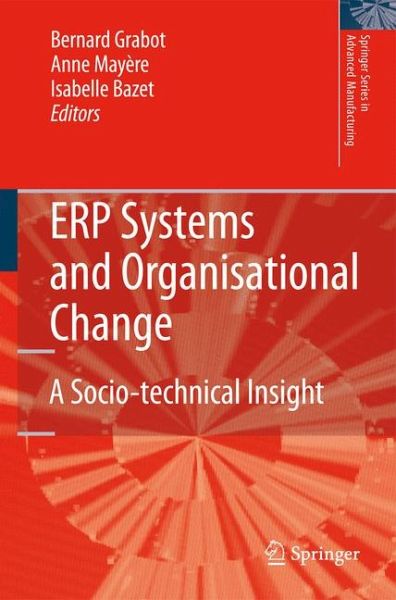ERP systems are clearly software systems which are supposed to support organisational and individual work. Thus, ERP Systems and Organisational Change considers both the social and technical perspectives on this phenomenon. It is necessary to analyse not only the influence of the software on the organisation but also how the different uses made of these systems result in an unpredictable mutual adjustment between those in the organisation and the tool. The book illustrates various aspects of this mutual adjustment, with contributions by engineers, computer scientists, consultants, sociologists and economists which, together, provide a unique and comprehensive view of the problem. Without trying to build an artificial consensus, several case studies are commented upon alternatively with a technical and social view, showing how the same facts can have different interpretations and thus contribute to a better understanding of the phenomenon in question.
ERP Systems and Organisational Change is a must-read text for students and researchers in management, engineering science and sociology, as well as for technical and human resource managers and consultants in charge of implementation projects.
Dieser Download kann aus rechtlichen Gründen nur mit Rechnungsadresse in A, B, BG, CY, CZ, D, DK, EW, E, FIN, F, GR, HR, H, IRL, I, LT, L, LR, M, NL, PL, P, R, S, SLO, SK ausgeliefert werden.









